Explore our research
Biological
Chemistry Education
Inorganic/Organometallic
Materials/Polymer
Organic
Physical
Theoretical/Computational
Perform research with award-winning faculty |
See interdisciplinary research used in real-world applications |
Build invaluable skills, competencies and experience |
Our $56 million state of the art building is home to the Nuclear Magnetic Resonance facility and its eight high-field instruments, an on-site Mass Spec facility with four mass spectrometers, an X-ray diffractometer, a CFI-funded facility for materials characterization and more unique equipment in faculty labs.
With 26 award-winning faculty, and over 130 graduate students, post-doctoral fellows and research associates performing cutting-edge research in a multitude of areas, ranging from the most fundamental to very applied, you will find this an exciting place to do research.
Quick Links
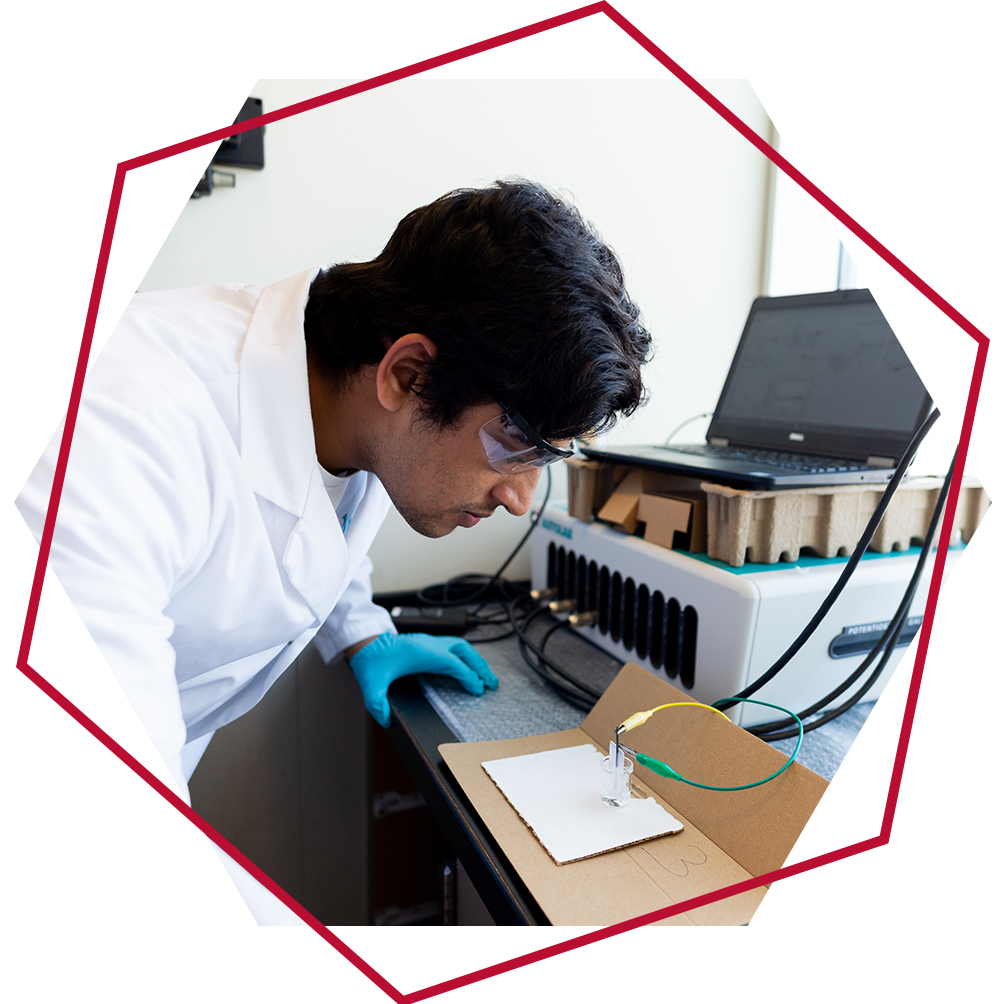
Analytical/Environmental
This area of research focuses on developing methods for identifying and quantifying specific chemical components. By examining the sample as a whole, we gain a deep understanding of complex connections.
Specialties include:
Clinical Chemistry |
Forensics |
Pharmaceutical and biomedical |
Cognitive and neuroscience |
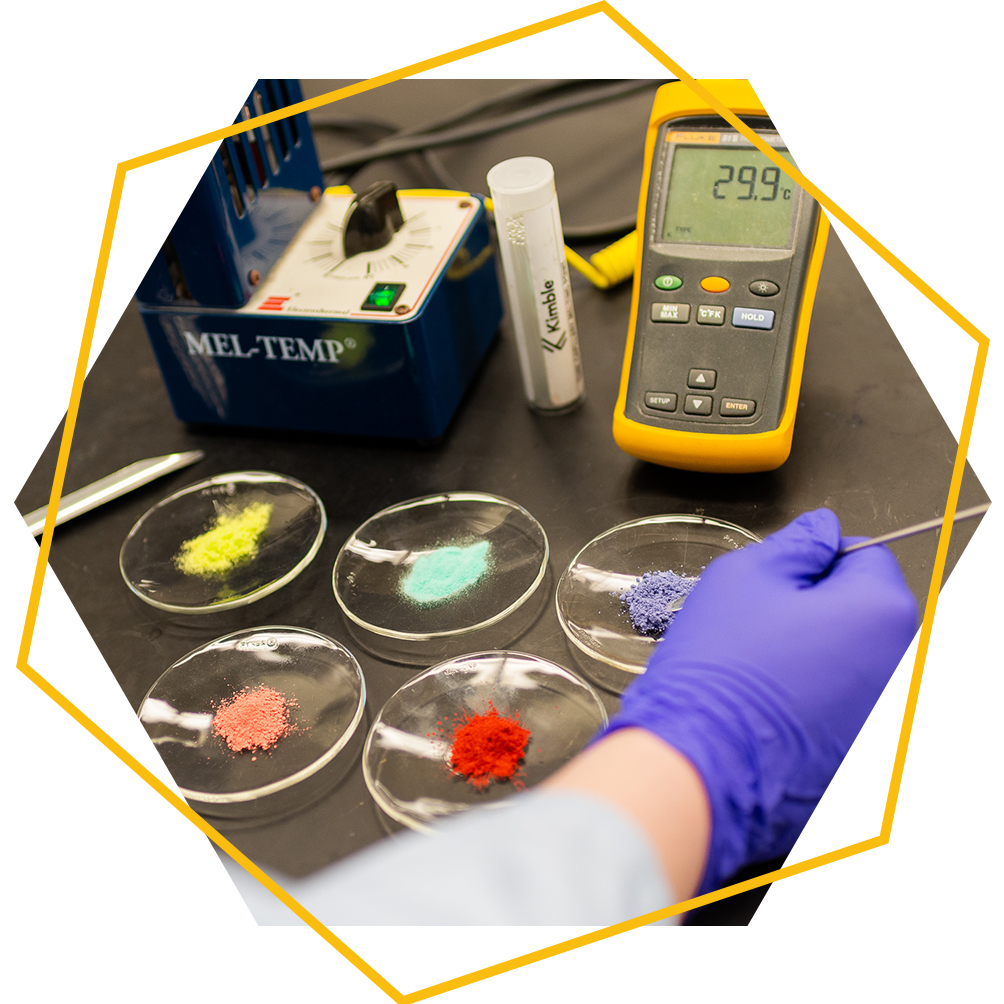
Biological
Biological Chemistry studies a range of biological systems, using chemical techniques and tools to examine the interaction between molecules. Ongoing research includes transition state analysis, organic and inorganic DNA targeting sensors, and biosynthesis of natural products.
Specialties include:
Glycoscience |
Microbiology |
Bioimaging |
Enzymology |

Chemistry Education
This combination of chemistry, cognition, and learning examines how chemistry is taught and how people learn. Bridging the social sciences with cognitive science and neuroscience, Chemistry Education explores the application, development, and improvement of how people learn and teach chemistry.
Specialties include:
Neuroscience |
Multimodal encoding |
Experiential learning |
Green Chemistry |
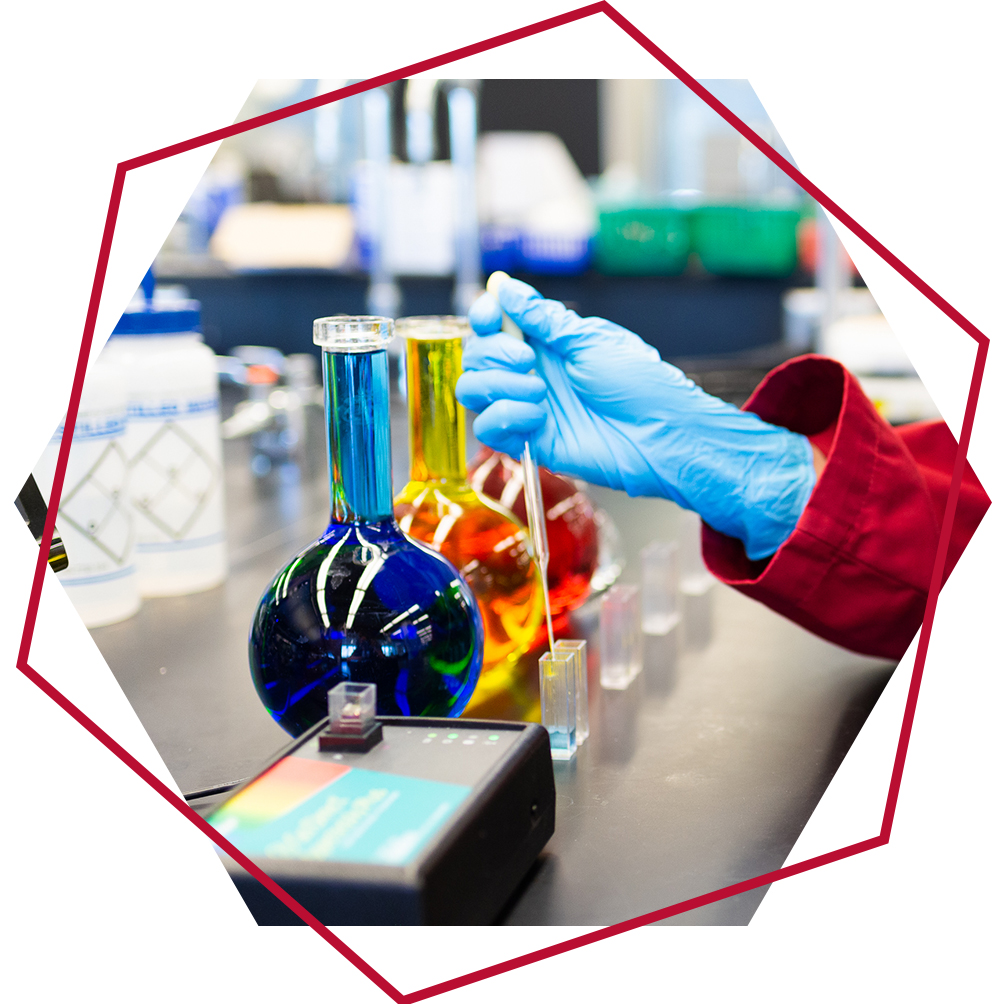
Inorganic/Organometallic
This is a broad area of research which is growing rapidly, covering synthetic molecular and materials chemistry with applications to medicine, synthesis, automotive, agrochemical, and much more.
Specialties include:
Biomedicine |
Chemical sensing |
Organoboron Chemistry |
Photocatalysis |
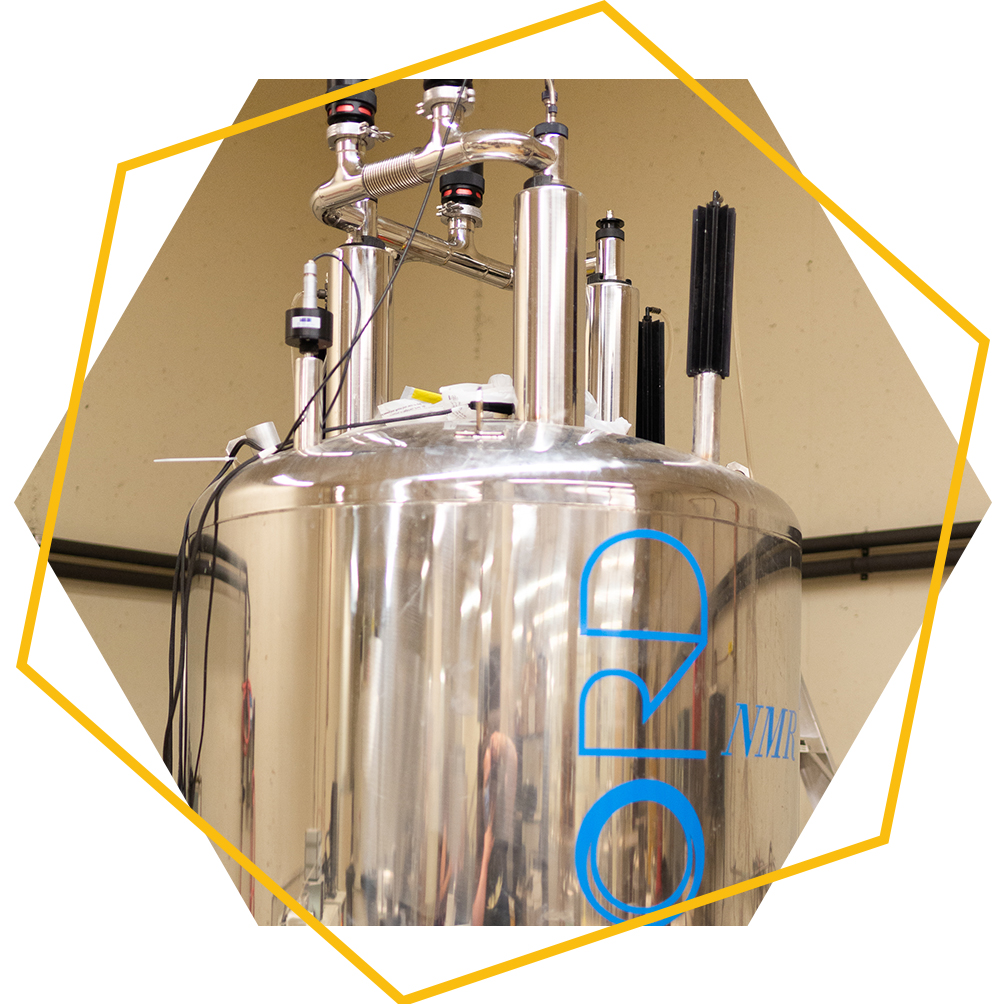
Materials/Polymer
This area of research studies solid state and new polymeric materials with interesting and potentially useful properties. Our researchers are supported by our state-of-the-art facilities and equipment, including solid state NMR instruments and Mass Spectrometry.
Specialties include:
Renewable energy |
Electrochemistry |
Pharmaceuticals |
Nanomaterials |

Organic
Organic chemistry studies the structure, properties, and reactions of organic compounds which form the basis of biochemistry. Due to their large diversity, their range of applications is vast and can be found in pharmaceuticals, agrichemicals, fuels, and many other areas that are topics of research in Queen's Chemistry.
Specialties include:
Chemical Glycobiology |
Biochemistry |
Enzymology |
Molecular biology |
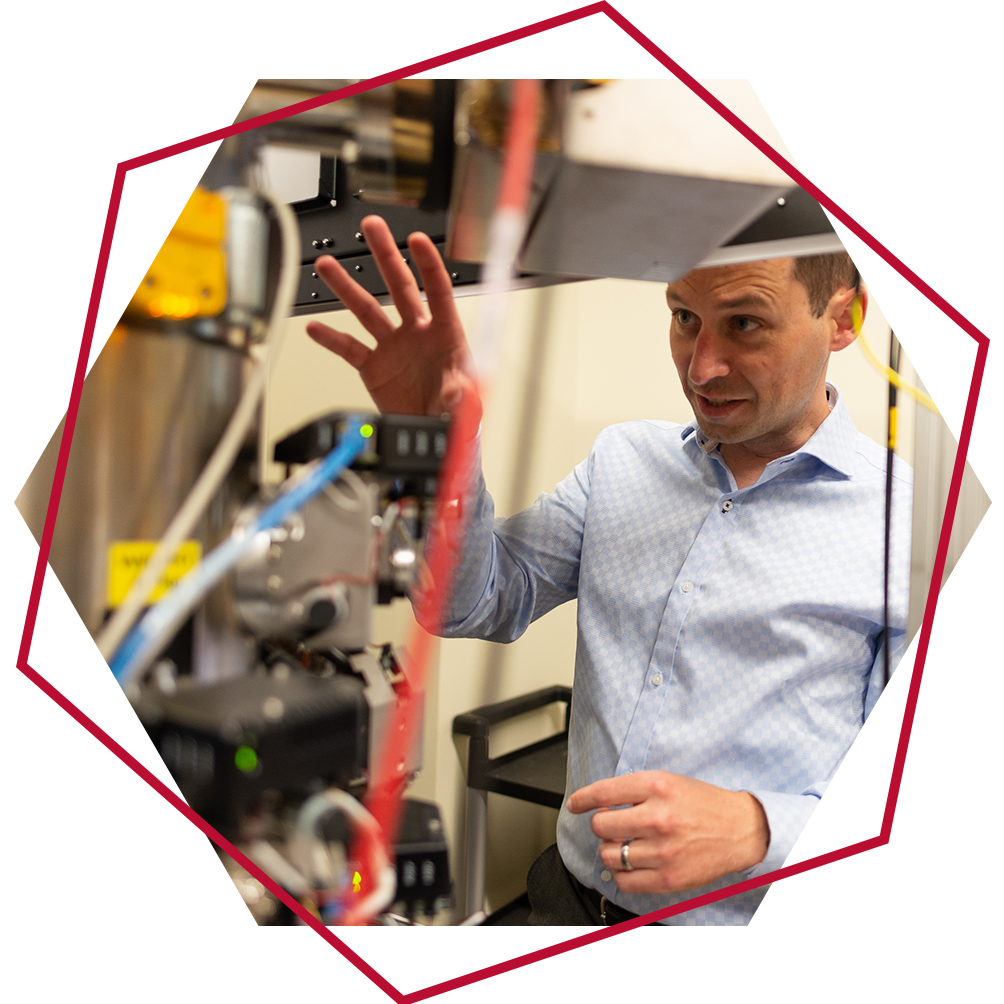
Physical
In this field of research, we study the physical and fundamental basis of chemical systems and processes. With a full suite of materials characterization tools (NMR, IR, XRD and mass spectrometry), our research includes energy materials and X-ray spectroscopy, portable biosensors, NMR techniques in studying molecular structure, dynamics, and chemical bonding, and much more.
Specialties include:
Sustainable development |
Surface Chemistry |
Microfluidics |
Analytical Chemistry |
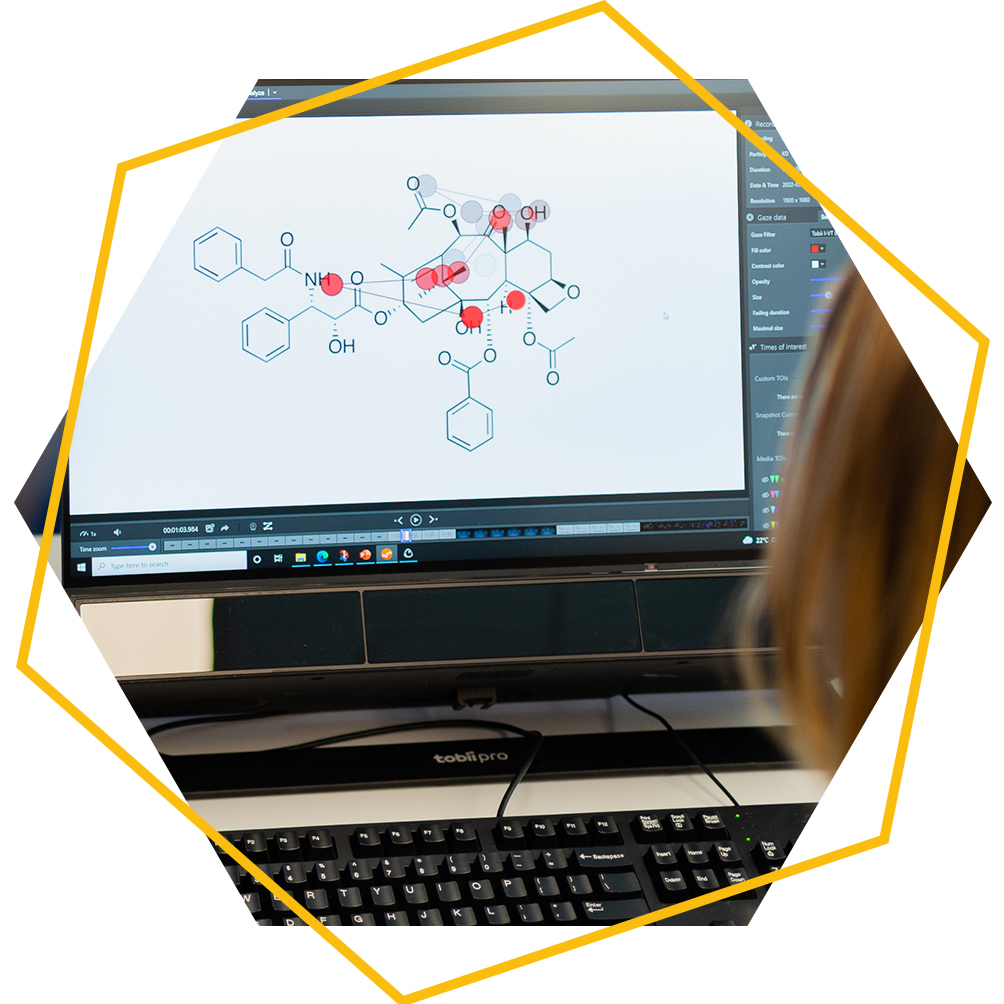
Theoretical/Computational
Apply theoretical reasoning to chemistry and use computer simulations to solve real-world chemistry problems. Research in this field is highly multidisciplinary, combining aspects of chemistry, physics, materials science, mathematics, computer science, and engineering. This leads our students to a wide range of career paths.
Specialties include:
Quantum mechanics |
Machine learning |
Chemical dynamics |
Software development |


























